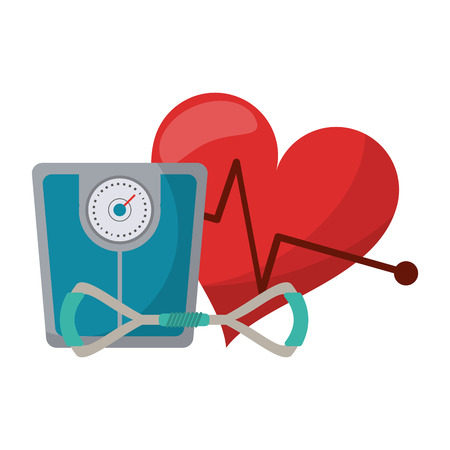Understanding Mental Health First Aid
Mental Health First Aid (MHFA) is an educational program designed to equip individuals with the skills to identify, understand, and respond to signs of mental health and substance use challenges. Originating in Australia in 2001, MHFA has gained significant traction in the United States over the past decade as workplaces increasingly recognize the importance of mental well-being. The core principles of Mental Health First Aid are rooted in compassion, non-judgmental listening, and early intervention. Much like traditional first aid for physical injuries, MHFA provides practical steps that anyone can take when faced with a mental health crisis or developing concern, such as anxiety, depression, or suicidal thoughts. By training employees to confidently offer initial support and guide colleagues toward professional help if needed, MHFA fosters a safer, healthier work environment where mental health is prioritized alongside physical safety.
Key Components of Mental Health First Aid Training
Mental Health First Aid (MHFA) training is a practical, skills-based course designed to equip individuals with the tools and confidence needed to assist someone experiencing a mental health challenge or crisis. This program is not just for mental health professionals—its structured so anyone can benefit, regardless of their background or role in the workplace.
Core Elements of MHFA Training
The MHFA curriculum typically covers several foundational areas. Below is a breakdown of what participants can expect:
| Component | Description |
|---|---|
| Recognizing Signs and Symptoms | Learn how to identify common signs of mental health issues such as depression, anxiety, substance use disorders, and psychosis. |
| Approaching and Assisting | Develop communication techniques to approach someone who may be struggling and provide initial support. |
| Crisis Intervention Skills | Gain strategies for handling situations involving panic attacks, suicidal thoughts, self-harm, or acute distress until professional help is available. |
| Resource Awareness | Understand how to connect individuals with appropriate resources, including Employee Assistance Programs (EAPs), therapists, hotlines, and community services. |
| Reducing Stigma | Explore ways to foster a supportive work environment by challenging stereotypes and promoting open conversations about mental health. |
Key Skills Developed Through Training
- Active Listening: Participants learn to listen without judgment and respond empathetically.
- Non-Intrusive Questioning: Techniques are taught for asking questions that encourage openness while respecting privacy.
- Crisis De-escalation: The training includes methods for calming tense situations and keeping everyone safe.
- Referral Skills: Attendees become familiar with local resources and how to guide others toward further help.
- Cultural Competency: Understanding how culture impacts mental health perceptions and responses is emphasized, especially in diverse American workplaces.
Who Can Benefit from MHFA?
Mental Health First Aid training is valuable for a wide range of workplace roles. Here’s an overview:
| Role/Group | Benefit Gained |
|---|---|
| Managers & Supervisors | Better equipped to recognize employee distress early and support team wellbeing proactively. |
| HR Professionals | Able to integrate mental health support into existing policies and employee assistance programs. |
| General Staff & Coworkers | Create a peer-supportive environment where colleagues look out for each other’s mental wellbeing. |
| Diversity & Inclusion Teams | Add another layer of support that aligns with DEI initiatives by addressing mental health stigma in marginalized groups. |
| First Responders & Safety Officers | Prepared to handle workplace crises involving mental health issues safely and effectively. |
This broad applicability makes MHFA a smart investment for any organization looking to strengthen its safety net for employees’ overall wellness.

3. The Importance of Addressing Mental Health at Work
Mental health is no longer a taboo topic in American workplaces, and for good reason. According to the National Alliance on Mental Illness (NAMI), one in five adults in the U.S. experiences mental illness each year. Despite this, many employees still feel uncomfortable discussing their struggles or seeking support at work. This silence can have serious consequences—not just for individual wellbeing, but also for business outcomes.
Statistics That Highlight the Challenge
The numbers are clear: mental health issues are widespread and costly. The American Psychiatric Association estimates that untreated mental illness costs the U.S. economy up to $210 billion annually due to absenteeism, reduced productivity, and increased turnover. In fact, mental health-related absenteeism accounts for nearly 62% of all missed workdays nationwide.
The Role of Workplace Culture
A healthy workplace culture that prioritizes mental wellbeing can make a significant difference. When employers actively address mental health through initiatives like Mental Health First Aid (MHFA) training, they create an environment where employees feel safe, supported, and more likely to seek help early on. This open culture reduces stigma and empowers individuals to look out for one another.
Why Prioritizing Mental Health Matters
Focusing on mental health isn’t just the right thing to do—it’s also a smart business strategy. Companies that invest in mental health support see higher employee engagement, improved morale, and better retention rates. Workers who feel mentally supported are more productive, innovative, and loyal to their organizations. Ultimately, addressing mental health needs benefits everyone—from individual employees to the bottom line of the company.
4. Benefits of Implementing Mental Health First Aid in the Workplace
Mental Health First Aid (MHFA) is more than just a training program—its an essential tool for building a healthier, more productive work environment. By equipping staff and leaders with MHFA skills, employers can realize significant benefits that impact both individual employees and the organization as a whole. Below, we discuss the key advantages:
Reducing Stigma Around Mental Health
One of the most immediate benefits of MHFA is its power to break down negative stereotypes and misconceptions about mental health. When employees receive MHFA training, they learn to recognize that mental health challenges are common and treatable. This reduces fear and misunderstanding, encouraging open dialogue and support throughout the workplace.
Earlier Intervention and Support
With MHFA-trained staff, signs of mental health issues—like anxiety, depression, or substance misuse—can be spotted early. Early recognition means employees are more likely to get help before problems escalate, reducing absenteeism and preventing crises. This proactive approach helps maintain a stable and supportive working environment.
Long-Term Cost Savings
Investing in MHFA leads to measurable financial benefits. Untreated mental health concerns often result in increased healthcare expenses, lost productivity, and higher turnover rates. By addressing these issues early, organizations can save on costs related to disability claims, workers compensation, recruitment, and training new hires.
Summary Table: Key Benefits of MHFA for Employers & Employees
| Benefit Area | For Employers | For Employees |
|---|---|---|
| Stigma Reduction | Cultivates inclusive culture; improves morale | Encourages seeking help; reduces shame |
| Early Intervention | Lowers absenteeism; minimizes disruption | Faster access to support; prevents escalation |
| Cost Savings | Reduces healthcare & turnover expenses | Improves job security; supports well-being |
The implementation of Mental Health First Aid is a strategic investment in your people and your business. By prioritizing mental health awareness and response skills, organizations lay the groundwork for long-term success and resilience.
5. How to Roll Out Mental Health First Aid in Your Organization
Step 1: Assess Organizational Readiness
Begin by evaluating your organizations current approach to mental health and wellness. Survey employees to gauge awareness and attitudes towards mental health issues. Identify gaps in support systems, and ensure leadership buy-in for Mental Health First Aid (MHFA) implementation.
Step 2: Source Qualified MHFA Training Providers
Research certified MHFA training providers who are accredited by organizations like the National Council for Mental Wellbeing. Consider whether in-person or virtual training best fits your teams needs. Request proposals, review trainer credentials, and check references from other companies that have adopted MHFA.
Step 3: Customize Training for Your Workplace
Work with your chosen provider to tailor the program to your industry and workplace culture. Decide whether to train all staff or start with key personnel such as managers, HR professionals, or employee resource group leaders. Ensure that training sessions accommodate diverse schedules and learning preferences.
Step 4: Integrate MHFA into HR Policies
Update your HR handbook and relevant policies to reflect the presence of MHFA-trained personnel. Clearly communicate roles, confidentiality protocols, and procedures for seeking help. Make MHFA resources visible in break rooms, onboarding materials, and on the company intranet.
Step 5: Foster a Supportive Environment
Encourage ongoing conversations about mental health by hosting regular workshops, Q&A sessions, or lunch-and-learns. Recognize MHFA-trained employees and promote a stigma-free workplace where seeking help is normalized and supported at every level.
Ongoing Evaluation and Improvement
Finally, collect feedback after each training session and at regular intervals thereafter. Use surveys or focus groups to assess effectiveness and identify additional needs. Adjust your approach as necessary to ensure that MHFA remains a valuable component of your organization’s overall wellness strategy.
6. Stories from American Workplaces
Mental Health First Aid (MHFA) has been making a real impact across various industries in the United States, and many organizations are now sharing their experiences. By looking at real-life examples, we can better understand how MHFA can be integrated into the workplace, what challenges may arise, and which best practices have proven most effective.
Case Study: A Tech Firm’s Journey
One Silicon Valley tech company decided to roll out MHFA training after noticing increased absenteeism and high stress levels among employees. The Human Resources department worked with certified MHFA instructors to create a series of workshops for managers and staff. According to their HR Director, team leaders who participated reported feeling more confident in approaching conversations about mental health and supporting colleagues in distress. The company also saw a measurable decrease in sick days related to mental health within six months of the program’s launch.
Case Study: Healthcare Workers on the Front Lines
A major Midwest hospital network recognized early in the COVID-19 pandemic that frontline healthcare workers were under immense psychological strain. By prioritizing MHFA training, they empowered nurses and administrative staff to recognize warning signs of burnout and provide initial support. The organization found that peer-to-peer support networks grew stronger and staff retention rates improved as employees felt better equipped to handle daily pressures.
Lessons Learned Across Industries
- Leadership Buy-In Matters: In every successful case, executive leadership actively supported MHFA initiatives. This commitment signaled that mental health was a true priority.
- Ongoing Education Is Key: Companies that offered refresher sessions or integrated MHFA principles into regular meetings maintained momentum and kept mental health awareness top-of-mind.
- Create Safe Spaces: Successful workplaces encouraged open dialogue about mental health, normalizing these conversations and reducing stigma.
Best Practices for Implementation
- Begin with an internal needs assessment to identify specific stressors unique to your industry or workforce.
- Select enthusiastic “champions” from different departments to advocate for the program.
- Schedule regular check-ins post-training to gather feedback and adjust approaches as needed.
The Bottom Line
The experience of American companies shows that implementing Mental Health First Aid is more than just a box-ticking exercise—it can transform workplace culture, strengthen teams, and improve overall well-being. By learning from these real-world examples, other organizations can adopt strategies tailored to their own needs and create safer, more supportive environments for everyone.

